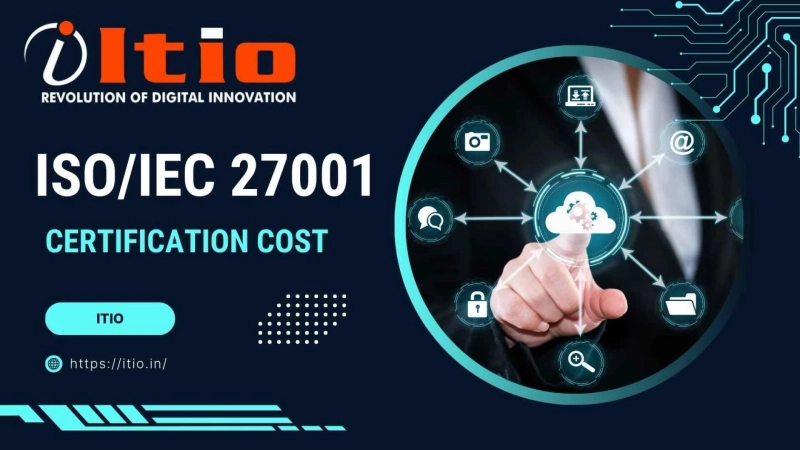In today’s hyper-connected world, cybersecurity is a non-negotiable priority, and organizations that don’t take proactive steps toward protecting their information assets risk not only data breaches but also loss of customer trust and reputational damage. For this reason, iso iec 27001 certification cost in 2025 has emerged as a critical benchmark of a company’s commitment to information security. But with 2025 already here, businesses are asking a key question:
What does it cost to get ISO 27001 certified in 2025?
Let’s explore the full cost breakdown, what drives pricing, and how your organization can plan and budget effectively.
Why ISO/IEC 27001 Matters in 2025
The ISO/IEC 27001 standard provides a globally recognized framework for implementing and maintaining an Information Security Management System (ISMS). Certification demonstrates that your organization is not only compliant with best practices but also serious about protecting customer data, intellectual property, and operational resilience.
As governments introduce stricter regulations like the GDPR, HIPAA, and India’s DPDP Act, ISO 27001 serves as a strong foundation for compliance and risk reduction.
How Much Does ISO/IEC 27001 Certification Cost in 2025?
There is no one-size-fits-all answer, but based on industry research and consultancy insights, here is what businesses can expect in 2025:
Organization SizeEstimated Total Cost (USD)Small Business (1–50 staff)$6,000 – $15,000Medium Business (51–250 staff)$15,000 – $30,000Large Enterprise (250+ staff)$30,000 – $70,000+
💡 Note: Costs may fluctuate based on geography, sector (e.g., healthcare or fintech), and the complexity of your IT environment.
Key Components of ISO/IEC 27001 Certification Costs
1. Initial Gap Analysis or Risk Assessment
Before the certification process begins, a gap analysis is recommended to identify the discrepancies between your current security posture and ISO 27001 requirements.
📈 Typical cost: $1,000–$5,000
2. Documentation and Implementation
Writing policies, procedures, risk treatment plans, and conducting internal audits will require dedicated time and expertise. If your internal resources are limited, hiring consultants may be necessary.
📈 Typical cost: $3,000–$20,000+
3. Certification Body Audit Fees
Engaging a certification body accredited by ISO is mandatory. These bodies conduct:
- Stage 1 Audit: Review of documentation
- Stage 2 Audit: On-site implementation and effectiveness check
- 📈 Typical cost: $3,000–$10,000+
4. Training and Awareness Programs
Your staff must be trained in security awareness and ISO policies. Online or classroom training options vary.
📈 Typical cost: $500–$5,000 depending on delivery and scale
5. Annual Surveillance and Recertification
ISO 27001 certification is valid for three years, with mandatory surveillance audits in years 2 and 3, followed by full recertification.
📈 Typical annual cost: $1,000–$5,000
Other Hidden or Overlooked Costs
🔍 Technology Upgrades
If your organization lacks encryption tools, SIEM systems, or secure access controls, additional technology investments may be required.
🔍 Internal Resources
While internal staff time isn’t billed externally, it should be accounted for. Compliance requires project managers, IT, HR, and department heads to contribute time.
🔍 Opportunity Cost
Delaying ISO 27001 certification might cost your business new clients or compliance opportunities. Many vendors now require ISO 27001 certification in procurement policies.
Factors That Influence Final Cost
✅ Scope of Certification
Certifying a single office is cheaper than certifying multiple departments, cloud services, and international branches.
✅ Maturity Level
Businesses already operating under compliance standards like SOC 2 or NIST may have a shorter journey and reduced costs.
✅ Sector-Specific Requirements
Highly regulated industries (finance, healthcare, SaaS) may require additional controls or audits.
Cost-Effective Ways to Achieve Certification
💡 Use ISO 27001 Toolkits and Templates
Plenty of low-cost digital toolkits include policy templates, risk registers, audit checklists, and implementation guides. This can save dozens of hours and reduce reliance on expensive consultants.
💡 Leverage Online Training
Instead of paying for external trainers, invest in online ISO 27001 training platforms that offer certifications for staff awareness and lead implementer roles.
💡 Start Small with a Limited Scope
Certify the most critical part of your business first—like a SaaS platform or data center—and expand the scope later.
💡 Bundle Services with a Consultant
Some providers offer “all-in-one” packages that combine gap assessments, training, documentation, and pre-certification audits, helping cut costs.
Is the Investment Worth It in 2025?
Absolutely. Consider the return on investment (ROI) of ISO 27001 in terms of:
- Winning enterprise contracts
- Reducing insurance premiums
- Avoiding regulatory penalties
- Improving internal accountability
- Strengthening brand reputation
The cost of non-compliance—data breaches, legal battles, loss of customers—can be far greater than the cost of certification.
Conclusion: Secure Your Future with a Strategic Investment
In 2025, ISO/IEC 27001 certification is no longer just a badge of honor—it’s a business necessity. Whether you're a tech startup, healthcare provider, or global enterprise, investing in a structured, secure, and scalable ISMS will pay dividends for years to come.
Plan ahead, allocate the right budget, and seek partners who understand your industry. With the right strategy, ISO 27001 certification doesn’t have to break the bank—it can unlock new markets and secure your business for the future.



